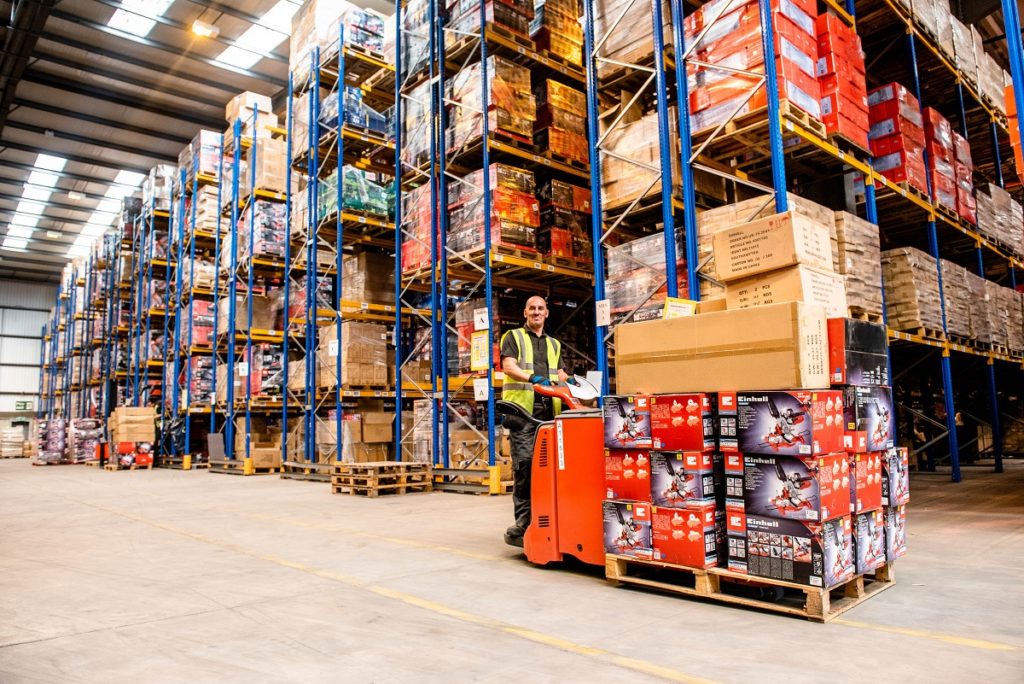For every £1 in GVA directly contributed by the ports industry, a further £2.15 in GVA is generated across the wider UK economy.
The sector makes a greater contribution to the UK economy than both rail and air combined.
The UK maritime workforce is 42% more productive than the average UK worker.
The sector is also a source of well-paid, highly-skilled roles, which pay an average of £38,000 per year – £9,000 more than the national average.


These stark statistics underline how important the sector is to the UK’s recovery from the pandemic, its broader ambitions in a post-Brexit trading environment, and turning levelling-up from ambition to reality.
Regional enablement
Port operators collectively invest around £500m each year in their communities. This is a substantial contribution to the country’s infrastructure, and the majority is made by privately owned enterprises, supporting jobs in construction and other sectors.
As a whole the maritime sector supports over one million jobs and adds £46.1bn to the economy. It facilitates 95% of UK global trade, representing 500m tonnes or £500bn in value every year, plus 60m passengers.
Crucially, as far as levelling up is concerned, ports operate in virtually every coastal community in the UK, presenting a unique opportunity to spread economic benefits in traditionally deprived areas more equitably, driving growth through employment, infrastructure, regional transformation and sustainability, whilst also relieving many of the acute pressures on the supply chain.
Mark Whitworth, chief executive of the one of the UK’s largest port groups, says: “For those not familiar with the industry, ports have evolved beyond all recognition and are a vital source of enablement for the regions they operate within. Our infrastructure acts as a catalyst to incite development in specific economic sectors and locations near ports”
“They create a wide range of business and job opportunities in the wider supply chain, as well as direct diverse employment benefits, through marine activity, cargo handling, ship operations and services, warehousing and processing, land transport, freight forwarding and customs brokering through to technology, infrastructure, government agencies and many more.
“At Peel Ports Group, we view ourselves as a game-changer for the companies that we serve as customers, the businesses that operate from our estates, and the communities we support. Our investment of over £1.2 billion in the last 10 years has helped to open-up new trade opportunities locally, bringing business to the regions in which we operate. This investment has resulted in 1000s of new, high-quality, skilled job opportunities for people living in coastal communities across the UK.”
Case study: Thriving regional ports bring community benefits
The Port of Liverpool provides vital local employment. A third of the workforce live within the borough of Sefton, and total full-time employment is equivalent to 3% of all private sector full-time employment in the borough.
Furthermore, 80% of the workforce live in the Liverpool City Region, which has benefited from over £500 million investment, helping to bring new jobs and business opportunities to the local area.
The business’s success has allowed it to donate thousands to local charities, whilst hundreds of thousands has been contributed to community improvements including road schemes, cycle paths, marine activity and tree planting.
Working with local colleges and schools, the business runs an active apprenticeship programme and has an average length of service of 11 years plus. The future is bright in Liverpool, with the City Region being granted Freeport status, which will open many other opportunities to the benefit of the port group, it’s community and wider economy.
Shifting the supply chain
As has been well reported, the entire logistics industry is facing challenges as a result of global port congestion, HGV shortages, Brexit and Covid impacts.
Even where ports have invested and planned for the future, the general turmoil in the supply chain is producing unpredictable shifts in cargo movements.
The traditional approach has been to invest in relieving congestion in existing bottlenecks. This relatively short-term fix has failed to address the bigger structural challenge – and opportunity – of how best to use the UK’s wider network of ports, especially those farther away from over-subscribed routes.
Currently almost 95% of deep-water container vessels enter via southern ports, yet 60% are transporting goods destined for areas farther North. Using regional ports rather than southern hubs shortens the journey from the port to the next stop, often by hundreds of miles. To take advantage of this means having a properly strategic and equitable investment programme across the country. That is just one of many levers available to the partnership of government and industry.
But the contributions to a sustainable future don’t stop there.
Peel Ports Group has major ambitions to revolutionise the future of port operations in local regions and has sustainability and levelling up high on the agenda, as Mark Whitworth summarises: “As an island nation, ports provide critical infrastructure as the UK’s gateways for food, medical, energy and fuel supplies. It is therefore important that port providers engender positive change in the UK’s logistics market in tackling climate change.
“As one of the largest port groups in the UK, we understand our responsibility to minimise the environmental impact of our operations for the benefit of the planet whilst also ensuring the smooth continuation of the supply chain in volatile times. Investment and future proofing is critical for a sustainable future.
“We have serious plans to work towards achieving long-term, sustainable growth that has a positive impact on the environment as well as regional economies and local communities for generations to come, with ambitious net zero targets and exciting new developments on the horizon.”
To find out more and talk to Peel Ports about how the maritime sector can combine levelling up with net zero, visit: https://www.peelports.com/about-us/investment












